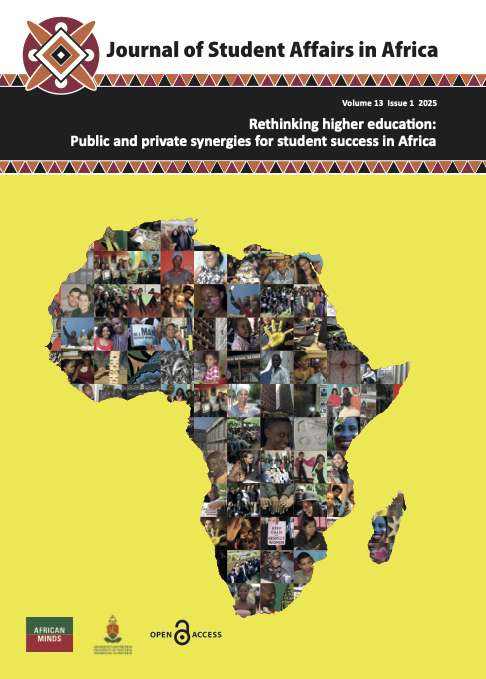Navigating bounded agency in exercising climate action: Insights from Malawian and Zambian university students
DOI:
https://doi.org/10.24085/jsaa.v13i1.5431Keywords:
climate action, students, bounded agency, capability approachAbstract
The pressing issue of climate change has galvanized a global movement, with young people at the forefront as vocal advocates for environmental action. However, various structural and institutional factors often constrain the ability of university student environmentalists to translate their concerns into meaningful action. Using the concept of bounded agency within the capability approach, this qualitative study explored the perspectives of students from two universities, one in Malawi and one in Zambia, to better understand the challenges and opportunities they encounter in their efforts to translate their environmental concerns into tangible outcomes. The study reveals that while participants are deeply committed to environmental concerns, they encounter significant obstacles, including a lack of institutional support and resources, sociocultural norms, and university power structures that marginalize their voices. Despite these challenges, students employ strategies such as building cross-institutional collaborations with NGOs, leveraging social media, and engaging in grassroots advocacy to navigate their bounded agency. The findings of this study contribute to a deeper understanding of the complex dynamics that shape the landscape for climate action efforts of student environmentalists in the Global South, highlighting the resilience and resourcefulness of student environmentalists in overcoming barriers to drive environmental sustainability.
Downloads
Published
Issue
Section
License
Copyright (c) 2025 Chimwemwe Phiri, Daizy Shoma Nalwamba

This work is licensed under a Creative Commons Attribution-NonCommercial-ShareAlike 4.0 International License.
Authors who publish with this journal agree to the following terms:
Authors retain copyright and grant the journal right of first publication with the work simultaneously licensed under the Creative Commons Attribution Share-alike 4.0 International License that allows others to share the work with an acknowledgement of the work's authorship and initial publication in this journal.
Authors are able to enter into separate, additional contractual arrangements for the non-exclusive distribution of the journal's published version of the work (e.g., post it to an institutional repository or publish it in a book), with an acknowledgement of its initial publication in this journal.
Authors are permitted and encouraged to post their work online (e.g., in institutional repositories or on their website) prior to and during the submission process, as it can lead to productive exchanges, as well as earlier and greater citation of published work (See: The Effect of Open Access).


